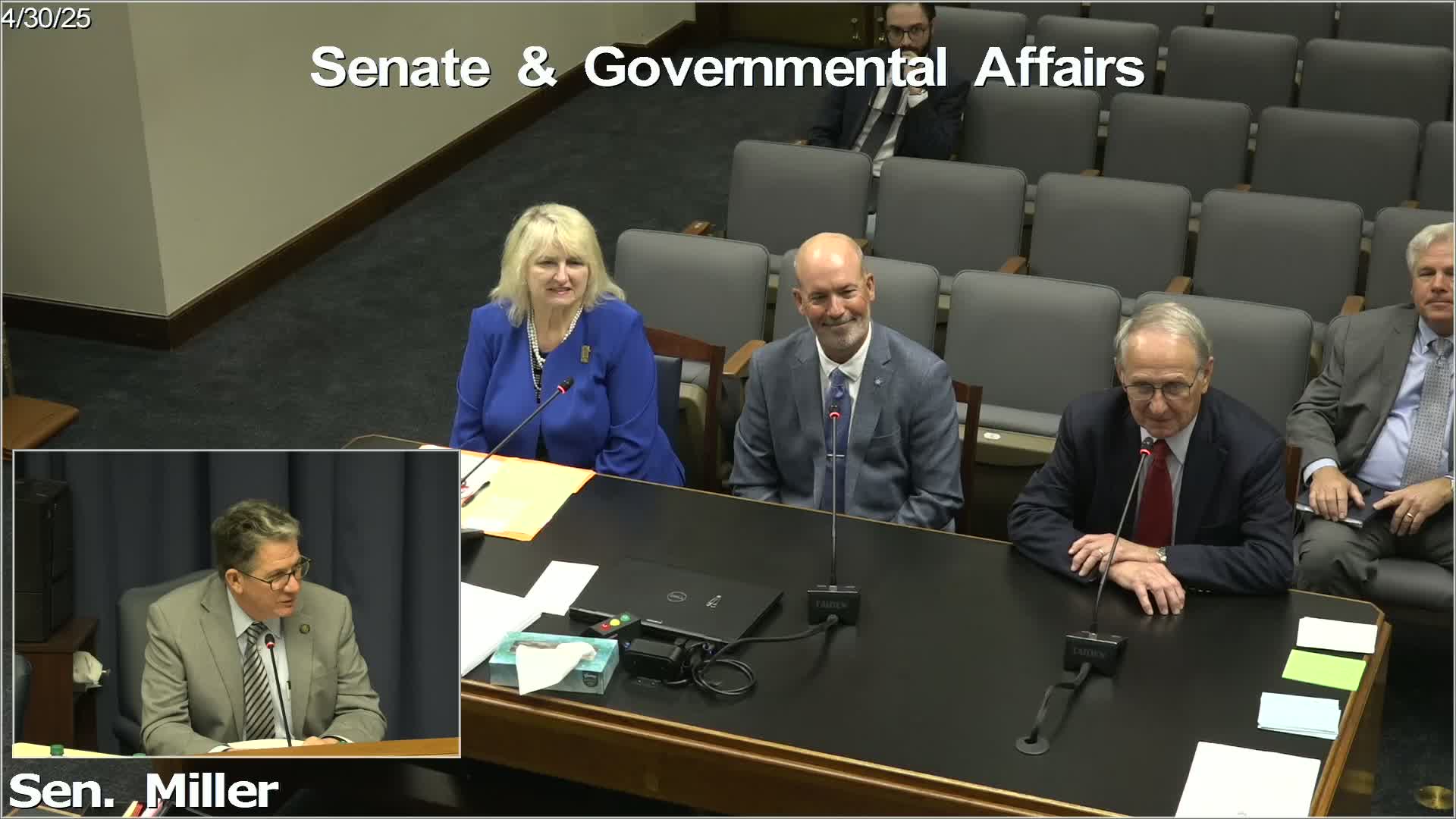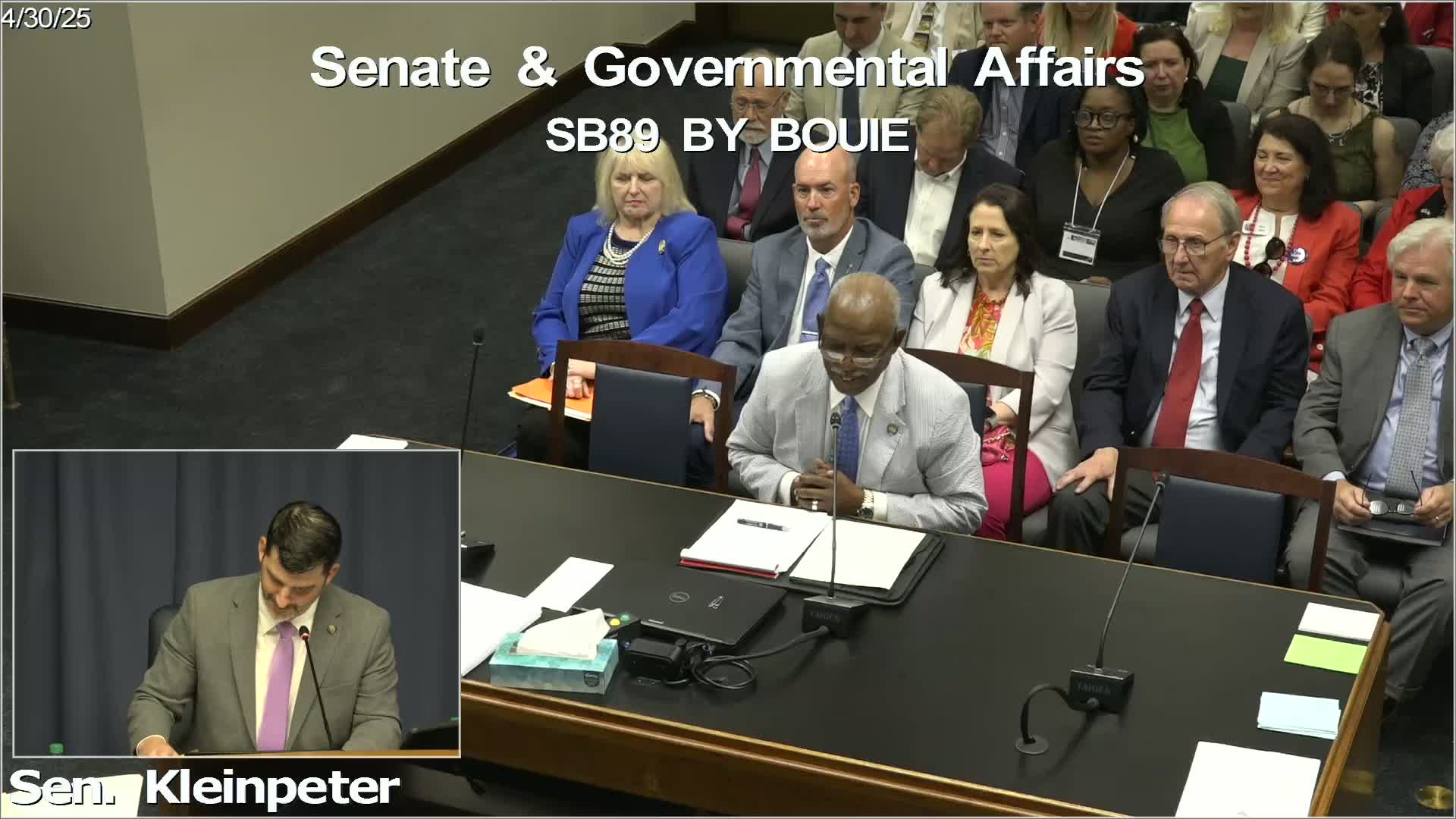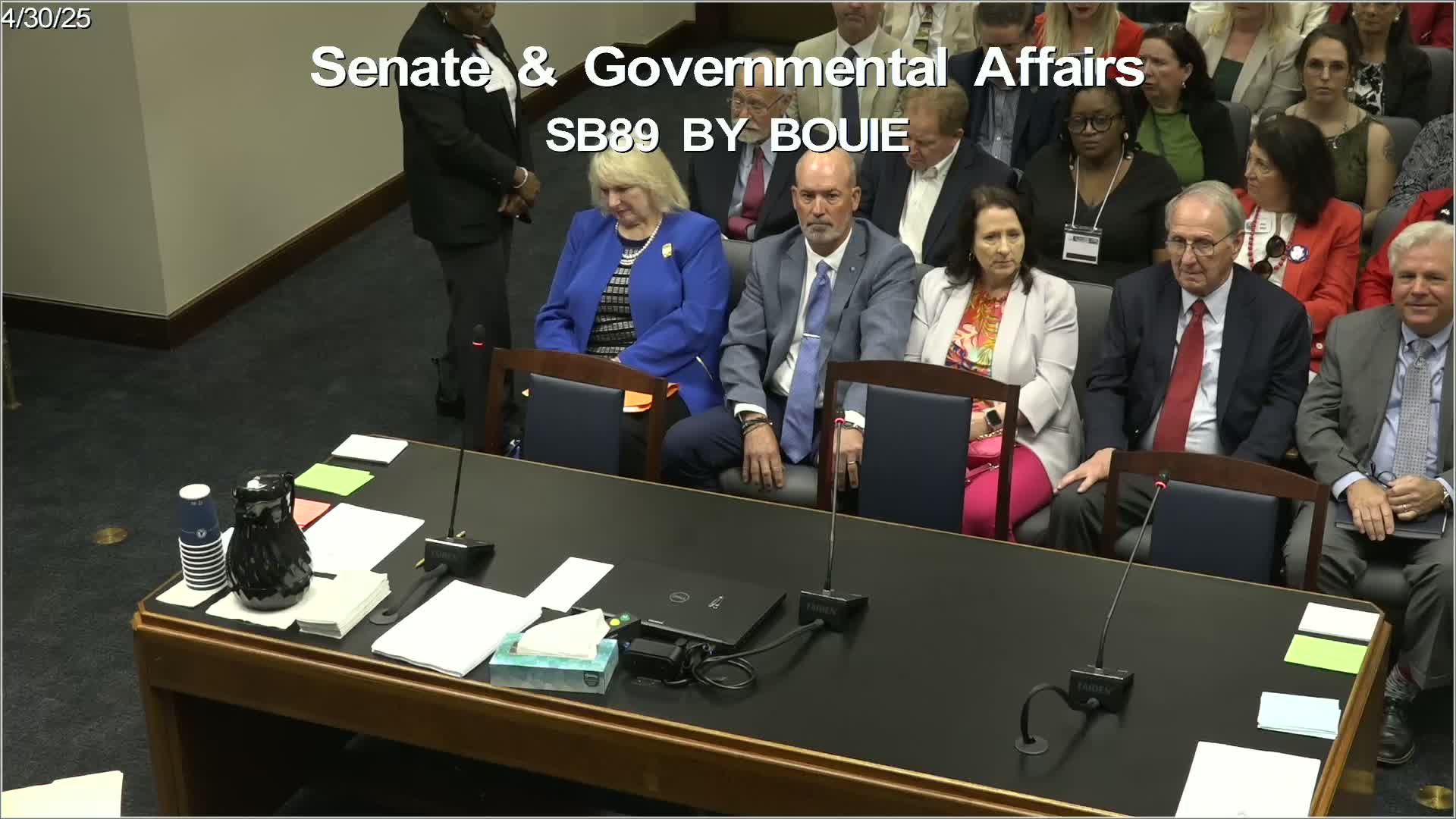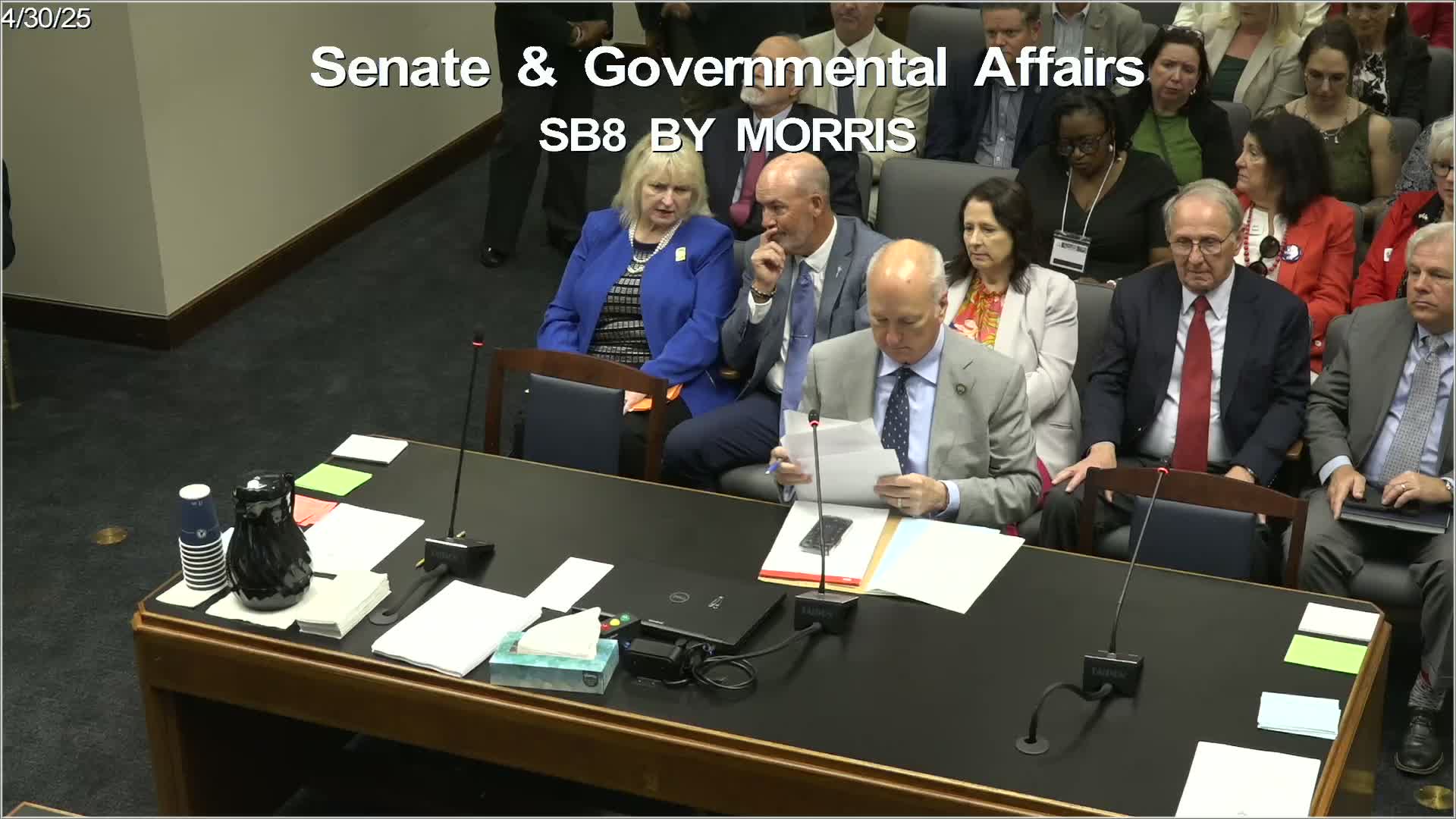Article not found
This article is no longer available. But don't worry—we've gathered other articles that discuss the same topic.

Committee holds confirmation hearings for board, corrections and public‑safety nominees

Committee approves Senate confirmation requirement for Port of New Orleans commissioners

Committee endorses bill to ban wagering on elections in Louisiana

